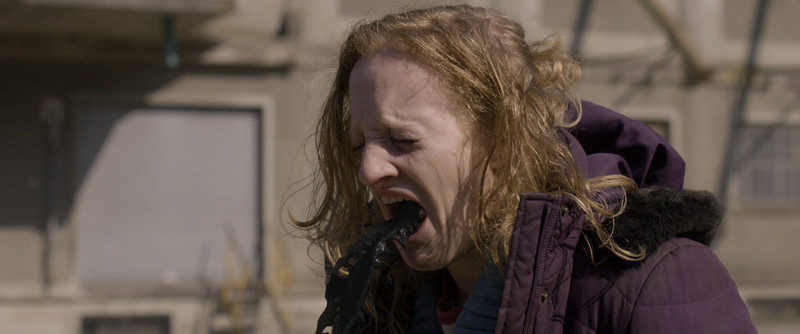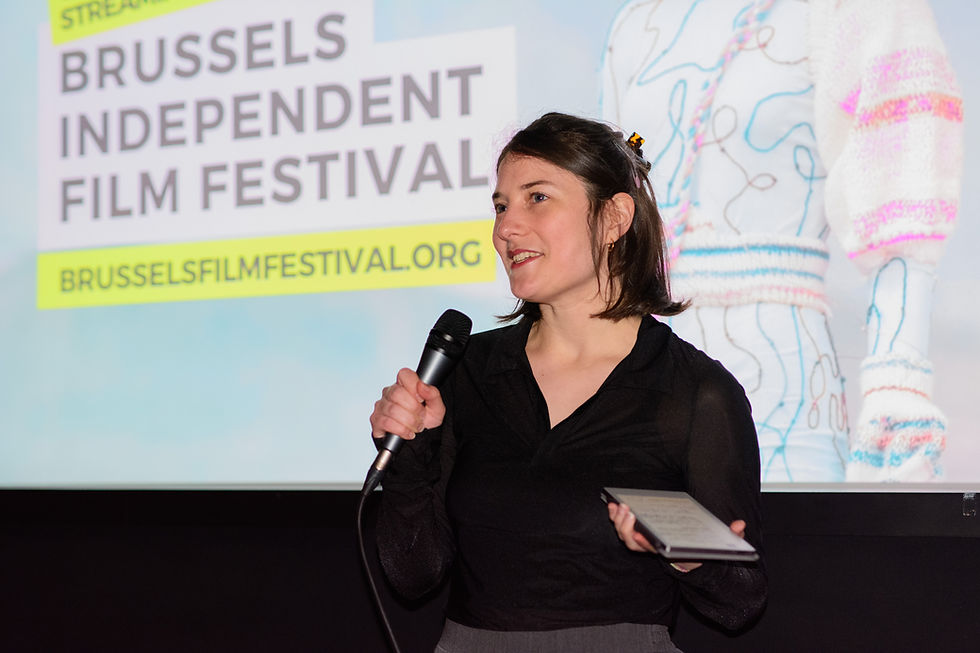Sydney World Film Festival looks back at double edition, announces 2021 award winners
- Apr 27, 2021
- 4 min read
Last Saturday marked the closing night of the 2021 edition of the Sydney World Film Festival, after eleven days of screenings and over eighty wonderful independent films with an edge. The edition was a double one, after finding themselves forced to postpone their 2020 event last year. It is safe to say the previous year has brought with it some troubling times for independent cinema, with the entertainment industry at large heavily impacted by Covid-19. Today, even as Sydney is back in bloom and cinemas have fully reopened, the pandemic clearly still leaves its mark through a post-Covid sentiment of unease, with many people less comfortable attending indoor events as last year's months-long lockdown is still fresh on our minds.
Despite this, SWFF is optimistic about the future of live cinema and is incredibly pleased with the number of enthusiastic film lovers who have found their way to the double edition this year. John Samaha, co-producer and host of the Sydney World Film Festival: “I was very happy with the large turnout and especially the audience's heartwarming feedback. This year's festival was clearly enjoyed by our audience.
SWFF believes there's nothing quite like that sense of community you get while enjoying great cinema on the big screen, together in the dark. John Samaha confirms: “During the screening of Tungrus (an Indian documentary short film) the audience almost doubled over from laughter. It was truly a pleasure to share our event with such a responsive audience.”
SWFF screened both last year's selection of 41 films (take a look back at the 2020 award winners on the website: https://www.sydneyfilmfest.com/2020), and another fresh new batch of 41 films for 2021, carefully selected out of over a 1300 submissions from all over the world. As the jury members have cast their votes, SWFF is pleased to announce to you today the 2021 Sydney World Film Festival award winners:
The 2021 award for Best Narrative Feature Film was given to 'My Son' (South Korea) by Equan Choe. In 'My Son', a man and his son gift each other something extraordinary. The man helps his son masturbate, and the son helps his father commit suicide.
'Ala Kachuu - Take and Run' (Switzerland) by Maria Brendle won the prize for Best Narrative Short Film. Sezim (19) wants to fulfill her dream of studying in the Kyrgyz capital when she gets kidnapped by a group of young men and taken to the hinterland. There, she’s forced to marry a stranger. If she refuses the marriage, she is threatened with social stigmatization and exclusion. Torn between her desire for freedom and the constraints of Kyrgyz culture, Sezim desperately seeks for a way out.
Best Documentary Film went to 'Spontaneous' (United States) by Lori Felker. You never know when someone is miscarrying; it could be happening right next to you.
'Desert Air' (United States) by ANDiLAND won this year's Best Experimental Film award. This short takes us on a dark journey down the rabbit hole of a turbulent adolescence.
Best Animated Film went to 'Honey High' (Australia) by Simon Dransfield. In a post-apocalyptic world a wizard hitman questions his purpose when he becomes his own next target.
'ATLAS' (France) by Jim Vieille was given the prize for Best Music Video. Dark and poetic, it depicts a rite of passage : the liberation of an inhibited personality. First, the night, rough, wild and frenetic, to let out all the accumulated frustrations. Then the next day, appeased, like a rebirth, a return to life.
And last but not least, the award for Best Australian Film went to 'The Charge' by Lester Jones. 'The Charge' poetically explores the notion of isolation and containment, and the need for expression that burns within us all. No matter how far we are pushed there is always a human compulsion to join together and break free, themes that may be more relevant now than ever before. Shot in Sydney on 16mm film, the project was written in 2019 about the notion of isolation, that can affect and see many suffer, but the project has added poignancy in light of the Covid-19 pandemic, which is seeing isolation and containment now affecting us all.
The Sydney World Film Festival team would like to thank Palace Cinemas and The Bigger Screen for their amazing support.
ABOUT SWFF
The Sydney World Film Festival was launched in 2015 as an online film festival. The online environment and the technology that made it possible was critical to the success of myriad filmmakers whose works would probably never have been screened at conventional festivals. Having a film selected at the festival was about industry prestige since the format only allowed private screenings for an international jury. In 2018, this distinguished festival entered a new era with its first brick-and-mortar event. Free and open to the public for the first time, this allowed filmmakers to witness the impact of their films on a live audience.
Inspired by the grand screening rooms of the past and born of today’s interconnected world, the Sydney World Film Festival has succeeded in finding its unique voice within the already bustling film festival scene in Australia's largest city. It attracts young independent filmmakers not only for its selection of films, but also for its networking opportunities.
The festival discovers, supports and develops new talent in filmmaking, providing a platform for emerging and established filmmakers from around the world. Recognising the important role independent films have in the history of filmmaking, storytelling, and culture, Sydney World Film Festival wants to help empower the next generation of artists. SWFF is an annual event showcasing independent films with an edge.
-3.png)








































Comments